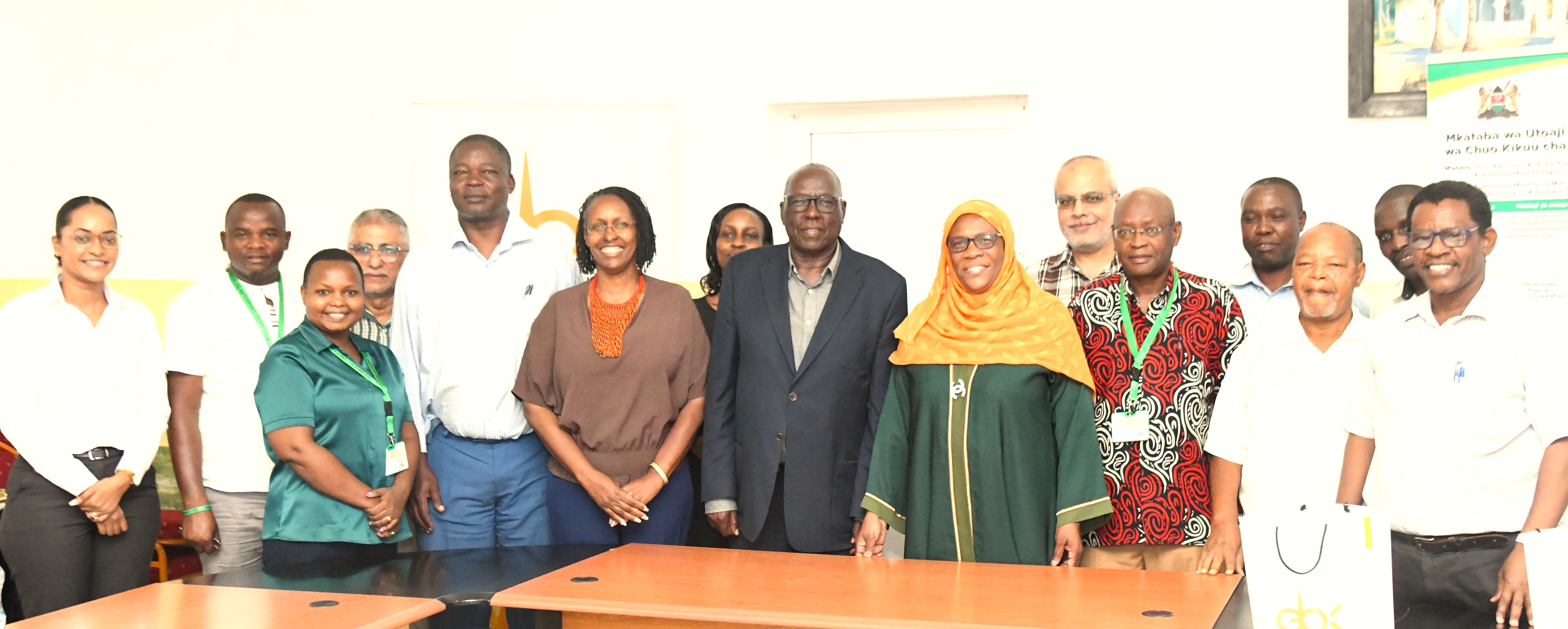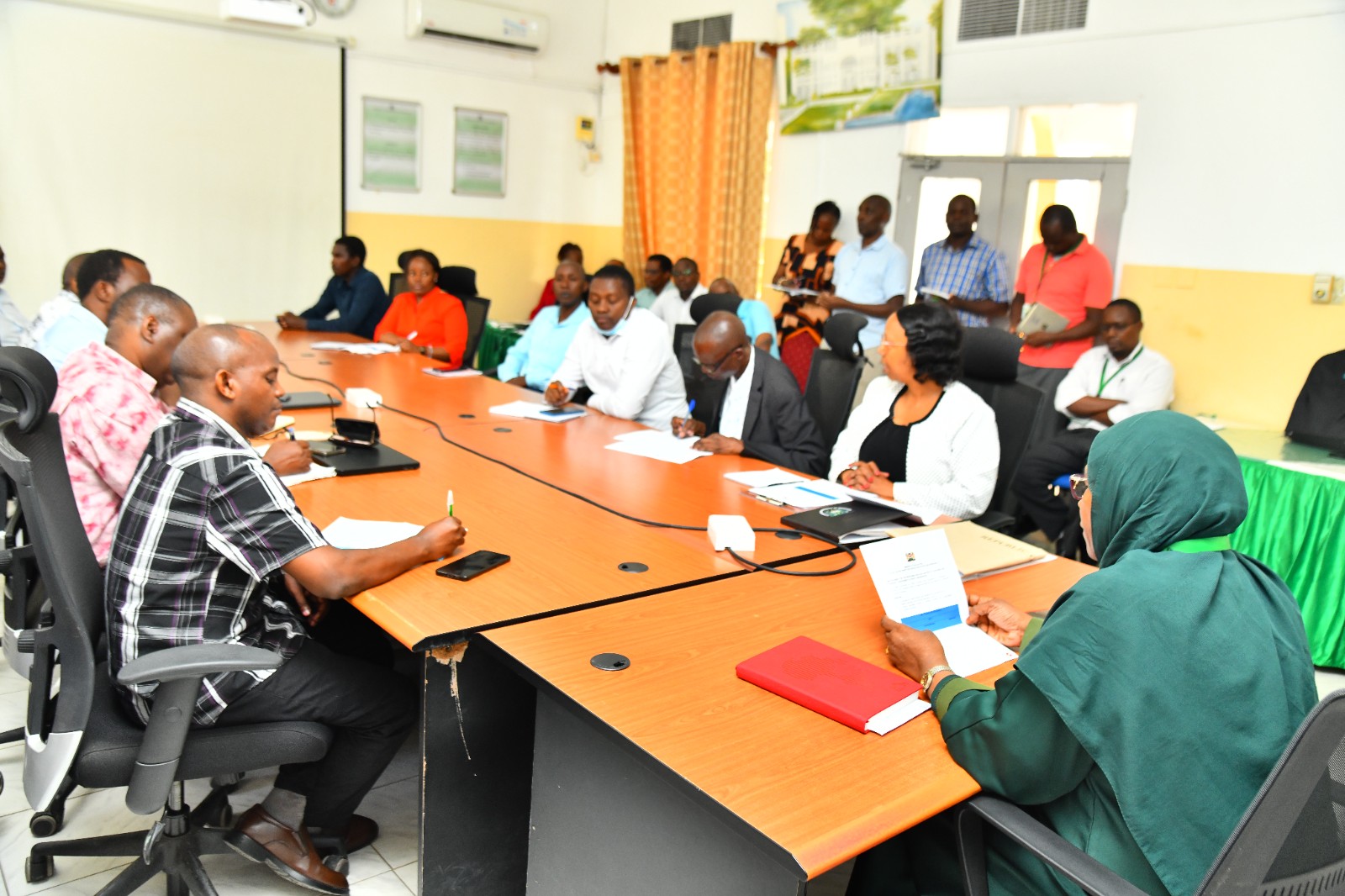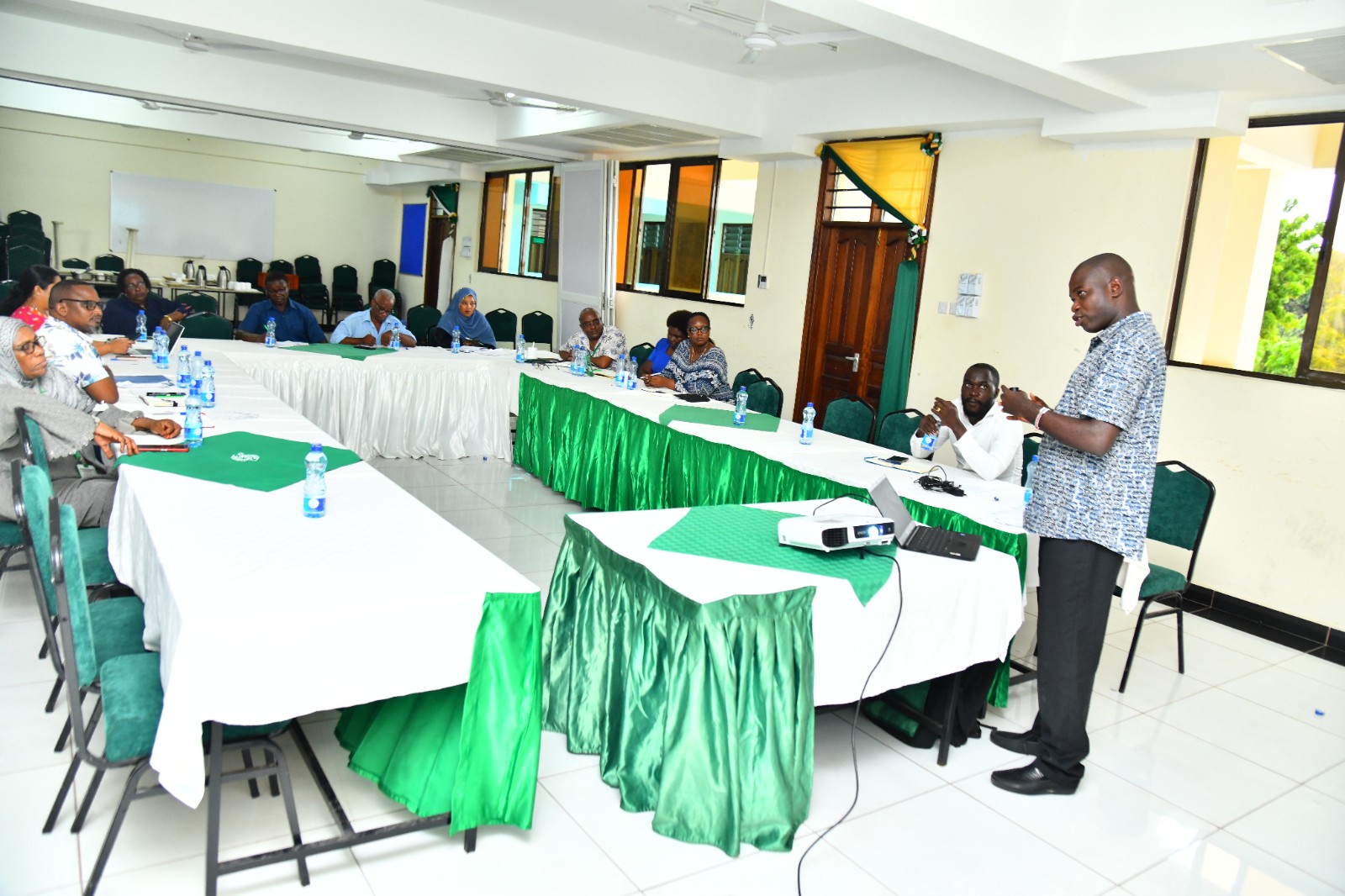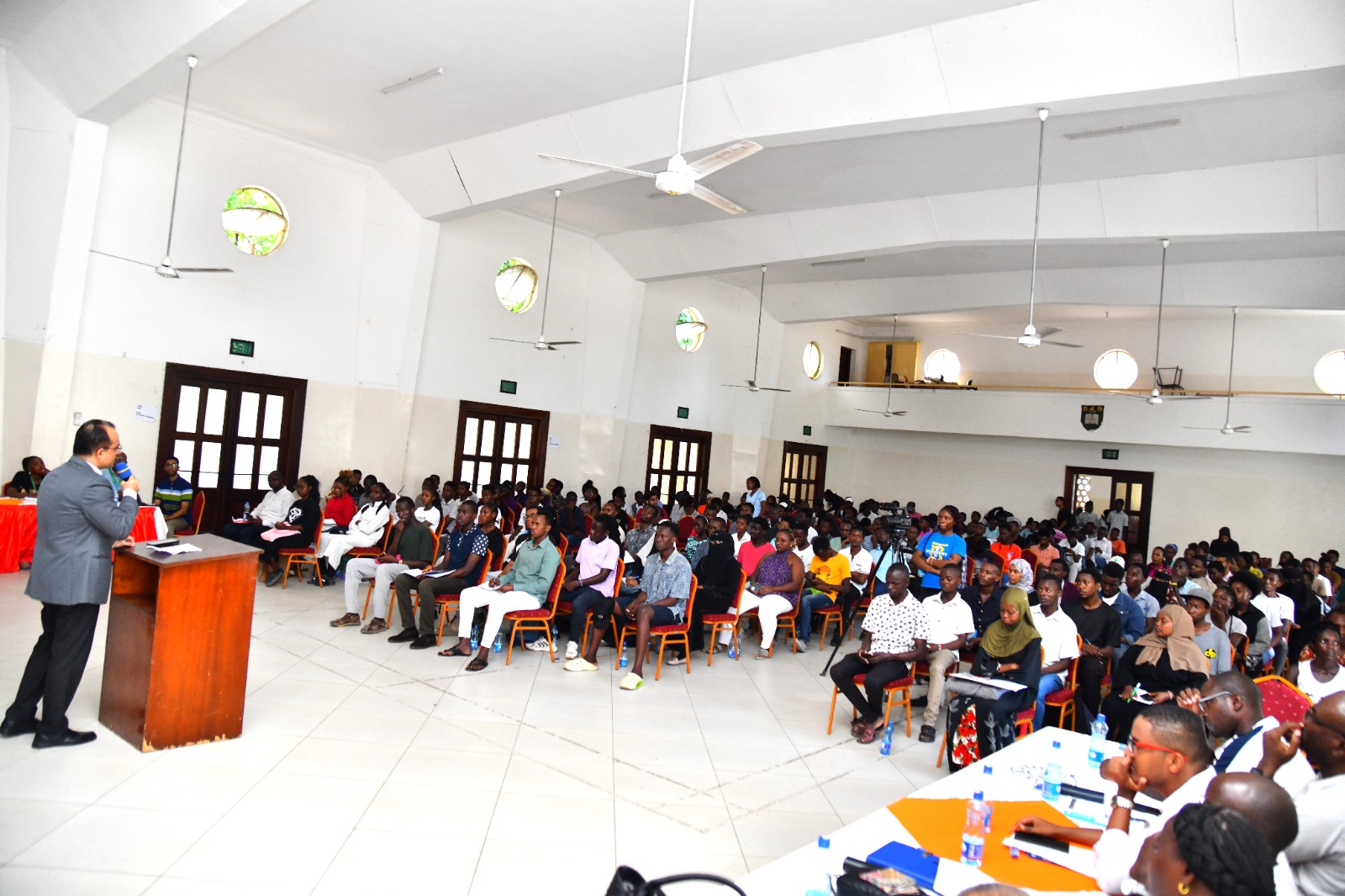Engineers Board of Kenya (EBK) Chairman Engineer Erastus K. Mwongera, PhD, has encouraged universities to ensure their programs are duly accredited, as that acts as key measure of their quality standards.
Prof Mwongera, an engineering expert of long standing, said accreditation is an unescapable necessity in today’s world.
He said this when addressing TUM top management and lecturers at the TUM’s conference room on Tuesday September 26, 2023.
The professor, who once served in the Ministry of Road and Public works in the 1990s and after 2000, emphasized that accreditation ensures the engineering programs meet certain quality standards, and this benefits everyone including the students, the industry and the university.
He said: “Accreditation agencies evaluate different aspects of engineering programs, such as the curriculum design, teaching methodologies, staff qualifications, and laboratory facilities. This evaluation process ensures that students receive a well-rounded education and acquire the necessary knowledge and skills required to excel in the field of engineering.”
Prof Mwongera added that accreditation promotes ongoing enhancements, as programs must adhere to specific criteria and exhibit a dedication to excellence.
Evolving profession
He pointed out that the field of Engineering has advanced significantly, transitioning from its traditional focus on mechanical engineering to encompassing various disciplines, including aerospace engineering, biomedical engineering, mechatronics engineering, mining engineering, and marine engineering.
The EBK Chair disclosed that the Board has recently established branches in several parts of the country including Mombasa and Kisumu; therefore, he urged TUM fraternity to make maximum use of the Mombasa branch.
University representative to the EBK, Engineer Silvester O. Abuodha, PhD, echoed the Chair’s sentiment that accreditation enhances the credibility and reputation of engineering education programs.
“Accredited programs are recognized by employers, professional organizations, and other educational institutions. This recognition assures employers that graduates from accredited programs possess the necessary competencies and are well-prepared for the demands of the industry,” Prof Abuodha said, adding:
“It also facilitates the transfer of credits between institutions, allowing students to pursue further education or transfer to other programs without any hindrance.”
Prof Laila
In her remarks TUM Vice Chancellor Professor Laila Abubakar stated that TUM has undergone the process of accreditation, and it has helped to promote accountability and transparency in the school of engineering.
She noted that accrediting agencies make it mandatory for engineering programs to undergo regular evaluations and assessments in order to ensure that they are meeting the established standards.
“This process holds programs accountable for their performance and encourages transparency in reporting outcomes,” the VC said while adding:
“Students and stakeholders can have confidence in the quality of accredited programs, knowing that they have been rigorously evaluated by an independent body.’’
Prof Laila requested EBK to give guidance to Universities on how to handle the competence-based curriculum generation, once they enroll to the Universities in few years to come. [Currently, the pioneering group of the CBC 2:6:3:3:3 education system are currently in Junior Secondary 1, or simply Grade 7.]
Engineers internship
EBK is planning to roll out a graduate internship program to expose engineers to the real world. The Board plans to register atleast 10,000 engineers in the next 5 years, the official said.
Present at the meeting were DVC Academics, Research and Extension Prof Peter Gichangi, Dean School of Engineering Dr Sameer Kamrudin Bachani, Acting Registrar Pertnerships Research and Innovation Dr Sylvia Mutua as well as various Chairs and Heads of Departments in the University.






